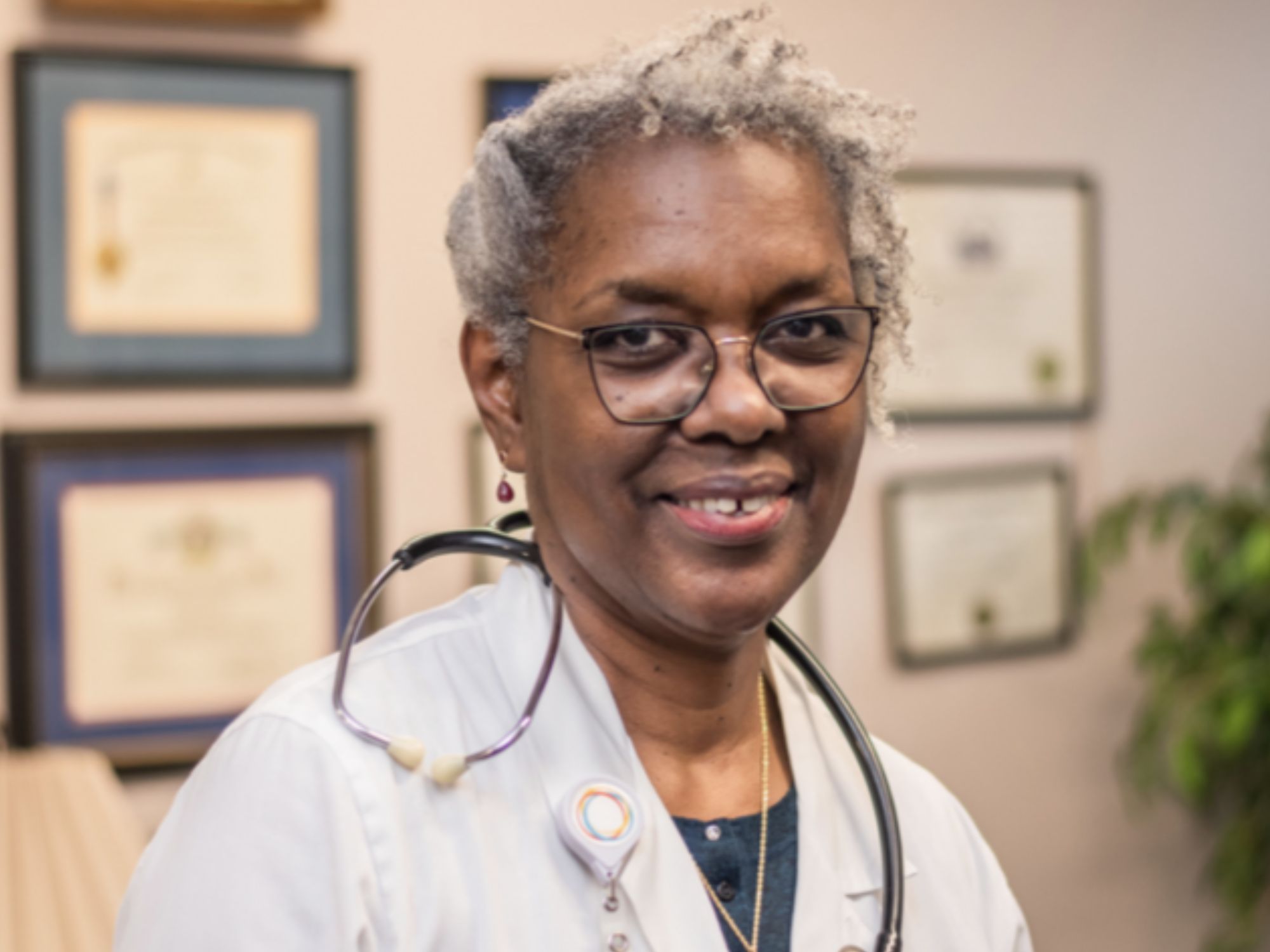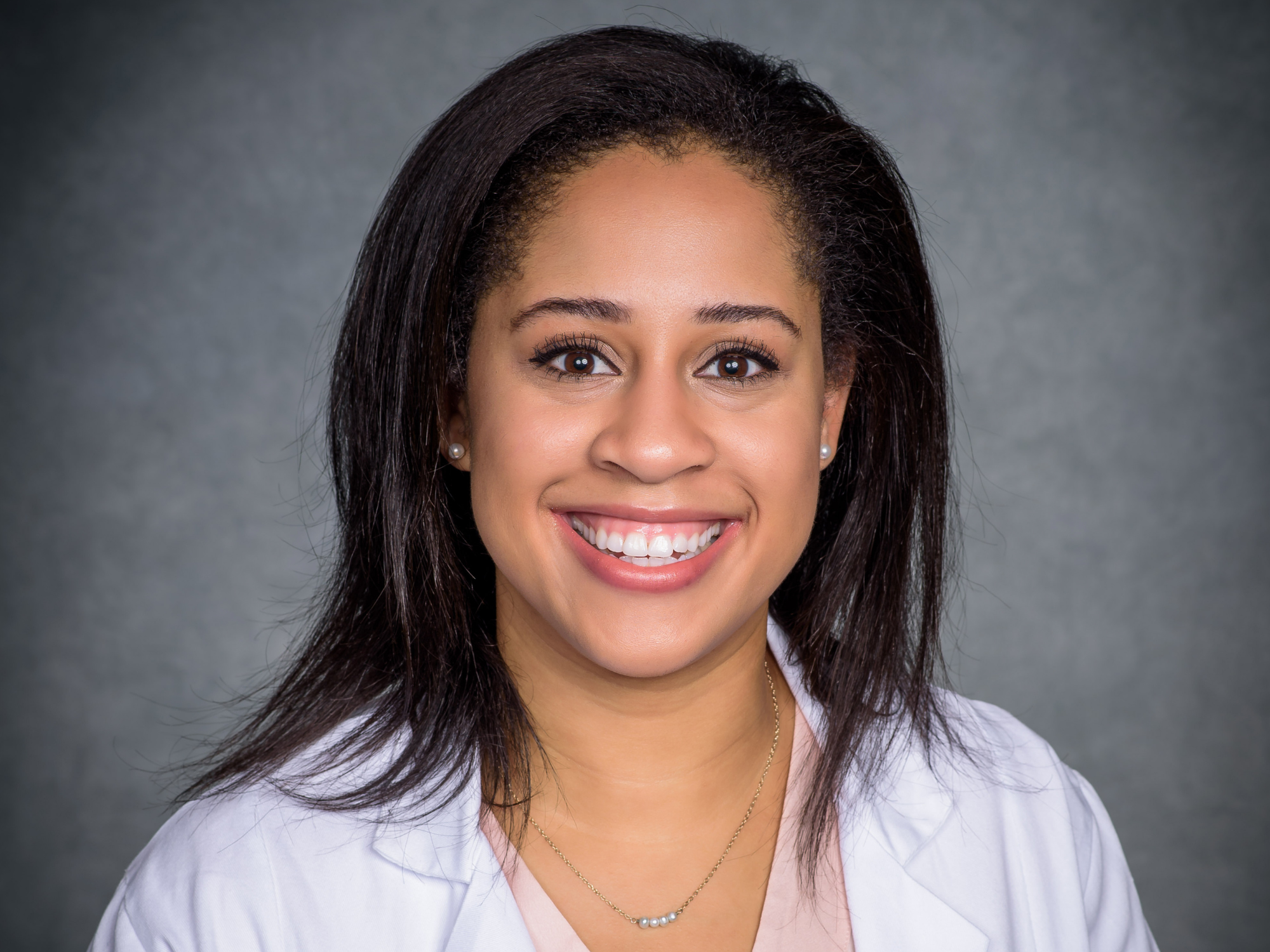 Photo: Jacqueline Lewis, M.D., by Ammarr Croskey, The Birmingham Times
Photo: Jacqueline Lewis, M.D., by Ammarr Croskey, The Birmingham Times
To celebrate Women’s History Month this past March, UAB Surgery’s Diversity, Equity & Inclusion Committee member and General Surgery Research Resident Katherine McElroy, M.D., interviewed Jacqueline Lewis, M.D., to discuss her impact on the field of surgery and future hopes for the field.
Lewis is a general surgeon at Princeton Baptist Medical Center in Birmingham. She has been in practice for over 34 years.
“What makes me most proud of what I do, is when I run into patients…I can see the impact of the care I have provided and sometimes I don’t remember the patient or the family, but they remember me and it means a lot to know that I’ve made a difference,” said Lewis.
In 1989, she became the first Black female general surgeon in Alabama and was one of the few Black female surgeons in the country.
“I would like to be an example, a role model. I’d like to see that what I have done may help future surgeons,” said Lewis.
With years of practicing general surgery, Lewis continues to use the knowledge she has gained from her experiences to teach future surgeons and surgical leaders.
“I’d like to be a role model for women who want to go into this field and for people of minorities,” said Lewis.
When Lewis started over 40 years a go and decided she wanted to pursue surgery the field was saturated with white men.
go and decided she wanted to pursue surgery the field was saturated with white men.
“It was rare to see a woman in surgery,” said Lewis, “At this point in time, I would like to see more women and more women that are [a part of the] minority in this field.”
Lewis encourages the future of surgery to include more diversity and representation. She said patients should be able to look at their healthcare professionals and see diverse representation in race, gender and other minority groups.
“As more and more women and women of color get into medicine, they will bring that picture to the patients so they can see that image,” said Lewis.
Many minority physicians choose their specialty based on what feels familiar to them and what they have seen done in the past. Lewis suggests that the field of surgery needs more role models that can connect with women and minority physicians, who can see themselves in surgery without feeling out of place.
“Because you have role models and can see that you fit into that family of physicians of all sorts, all genders, all races and all cultures—It helps for patients to look up and see someone that looks like them to feel comfortable in their providers,” said Lewis.
Concerning surgical education, Lewis stresses that it is important for future surgeons to see themselves in their instructors as well, pushing institutions to continue to work towards diversity and inclusion initiatives.
“That would provide an image to up-and-coming doctors have to make them feel that this is something that I can do, I have someone similar to me who has accomplished this [too],” said Lewis.
During medical school, Lewis excelled in her surgery rotation. After receiving good feedback from her fellow surgeons, she decided to continue in the surgical field by pursuing a residency in general surgery. In thinking about her residency training, Lewis notes that she did not have anyone to look up to that looked like her.
“Looking back and looking ahead—I’m where I am meant to be, doing what I am supposed to do and I am glad that I stuck to what I wanted to do because I can see the impact that I’ve made in so many patients lives,” said Lewis.
About Dr. Jacqueline Lewis
Dr. Jacqueline Lewis was born in Heidelberg, Germany in 1954 to Mrs. Jerolean Jones and the late Mr. Eugene Jones. During her childhood, she was exposed to many cultures due to being a military dependent of a father who served in the US Army and lived in Okinawa for a few years. Once in the United States, she lived out her childhood in North Carolina, Georgia, and Alabama.
While her father served in Vietnam, Lewis, her mother, and her siblings, lived in Birmingham, Alabama during her high school years. She was one of the first three Black students to attend the former Banks High School in Birmingham. Despite the obstacles of being a first, Lewis was a leader and honors student at her high school.
After high school, Lewis went to the University of Alabama at Birmingham (UAB) and was one of the few selected into their Physical Therapy program. She was elected President of the Student Physical Therapy Association during her time at UAB. After graduation, she worked for three years as a Registered Physical Therapist in Birmingham area hospitals and clinics including the Spain Rehab Center. She also started a Physical Therapy department at the former Community Hospital in Ensley.
Lewis then decided to go back to school and was accepted into the UAB School of Medicine in 1979, where she was awarded a full academic scholarship. She received her medical degree in 1983.
After medical school, Lewis interned in general surgery at UAB, then completed my general surgery residency at the Former New Rochelle Hospital Medical Center in New Rochelle, New York, an affiliate of New York Medical College. She was the first female and the first Black resident in the program. After completing her residency in 1989, she returned to Birmingham, where she became the first Black female general surgeon in Alabama.
Lewis is certified by the American Board of Surgery and a Fellow of the American College of Surgeons. She has been practicing general surgery at Princeton Baptist Medical Center since 1989 and is currently Chairman of the Credentials Committee and General Surgery Division Chairman. Lewis also served several years on the Medical Executive Committee at Princeton.
Lewis is married to Reddith Lewis. Together, they have one son, Jerren Lewis, and two grandsons, Cameron and Evan Lewis.